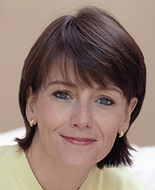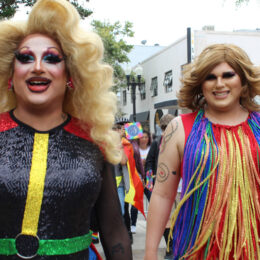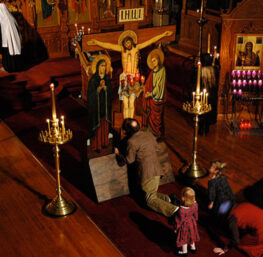
In the not too distant past, traditionalists theorized that when it came to raising children, the answer was to retreat from the world. Use private or parochial schools. Or even better, homeschool. Raise up a generation of kids who would change the world by trying to raise them outside the world.
To some degree, I concur. Homeschooling and using Christian and other private schools are great options for those who have the time and resources.
I’ve spoken to many parents of young children who are absolutely convinced — even if using public schools — that their kids will be immune to un-Christian and anti-Christian influences. They’ll be able to infuse such strong values in their kids that they won’t be infected by the culture.
I know it works for some, and more power to them. But it doesn’t work for everybody. Not by a long shot. Like it or not, parents can’t control every aspect of their children’s lives: what they’ll overhear at baseball practice, what they’ll see on TV at a neighbor’s house, or on a computer screen while on a playdate. Peer pressure isn’t a fanciful concept: it’s real.
Christian parents have a responsibility to do everything they can to protect their children from the destructive, negative influences of the culture. But I also believe they should be concerned about the kids who make up the rest of their children’s generation.
After all, they’ll be the ones voting in the coming years on same-sex marriage laws. They’ll be the ones serving on school boards and determining sex ed curricula. They’ll be the ones debating whether tolerance applies to Christians. They’ll be the ones who, actively or passively, decide if it matters whether children are raised in traditional family structures.
Author Mary Beth Hicks in her new book, Don’t Let the Kids Drink the Kool-Aid, argues that because America’s future depends on the next generation, our responsibility doesn’t end with our own kids.
She’s got a good point. In considering what the future holds, maybe a good place to start is by taking a look at where things stand now. Hicks paints a bleak picture with some astonishing statistics from a 2010 Pew Research Center study:
– In 1978, 28% of registered voters thought marriage was an outdated idea. Today, it’s nearly 40%.
– As of 2008, 41% of children are born out of wedlock.
A 2010 study from Princeton University’s Woodrow Wilson School of Public Affairs showed clear risks to children born out of wedlock. “Single mothers and mothers in unstable partnerships engage in harsher parenting practices and fewer literacy activities with their children than stably married mothers. Family instability … increases aggressive behavior … especially among boys,” according to the study.
Family breakdown is also just plain costly. Another study estimates that the cost of family breakdown to federal, state and local governments exceeds $112 billion a year. Think welfare, prisons, and police.
So we know children fare better when raised by their married, biological parents (how many times do we have to hear this before it sinks in?), and we know the breakdown of families puts a heavy burden on the state (i.e., taxpayers who fund it). Yet the media endlessly mocks traditional families (to say nothing of traditional values) by providing entertainment that, as Hicks writes, “relentlessly promotes the idea that traditional families are obsolete, unnecessary, hypocritical, and even a little absurd.”
Just look at the TV show that recently won the Emmy for this year’s Outstanding Comedy Series — Modern Family. Here’s a brief description of the ABC show from TVsquad.com:
“Dad Jay tries to be accepting of his adult son Mitchell’s gay lover Cameron and adopted Asian baby, Lily, while Mitchell and his sister Claire try to be accepting of divorced Jay’s remarriage to the much younger, voluptuous Colombian Gloria, which came with Gloria’s wise-beyond-his-years pre-teen son Manny. If we had to point out the most ‘normal’ member of the Pritchett brood, or, at least, the one who puts the most fun in dysfunctional? Definitely Cameron, the flamboyant, flashy-attired boyfriend of Mitchell.”
We’ve come a long way since The Waltons.
Pushing its agenda via the big screen, Hollywood gave us The Kids Are All Right. The plot revolves around a lesbian couple with two teenage children who seek out their biological father, referred to as “sperm donor” by the moms. The title really says it all. We’re supposed to believe that everything’s hunky dory in this non-traditional family.
Unfortunately, the facts don’t support that fiction. Hicks cites a report called My Daddy’s Name is Donor: A New Study of Young Adults Conceived through Sperm Donation, which found that such kids “fare worse … on important outcomes such as depression, delinquency, and substance abuse.”
The study also found that donor-conceived children have serious concerns about the whole concept of donor conception. In addition, two-thirds of them agreed with the statement, “My sperm donor is half of who I am.” Nearly half expressed being upset that money played a role in their conception, and fear being attracted to someone to whom they might be related.
A discussion of current media pushing an agenda would be incomplete without mentioning the phenomenon called Glee. Ryan Murphy is the creator and director of the Fox hit in which storylines often revolve around gay and bisexual characters. Hicks writes that Murphy “is an outspoken gay activist who uses his creative platform to question the concept of heternormativity in storylines about teens.”
In fact, GLAAD (the Gay Lesbian Alliance Against Defamation) tracks the representation of gays and lesbians on television. In 2008, a total of 22 series on ABC, NBC, CBS, FOX and CW featured 35 LGBT characters. That’s a record.
The Kool-Aid is free and it’s being handed out by the gallon. More in my next column on how to staunch the flow.
HT: OneNewsNow



